Mergui Archipelago – Islands without Names
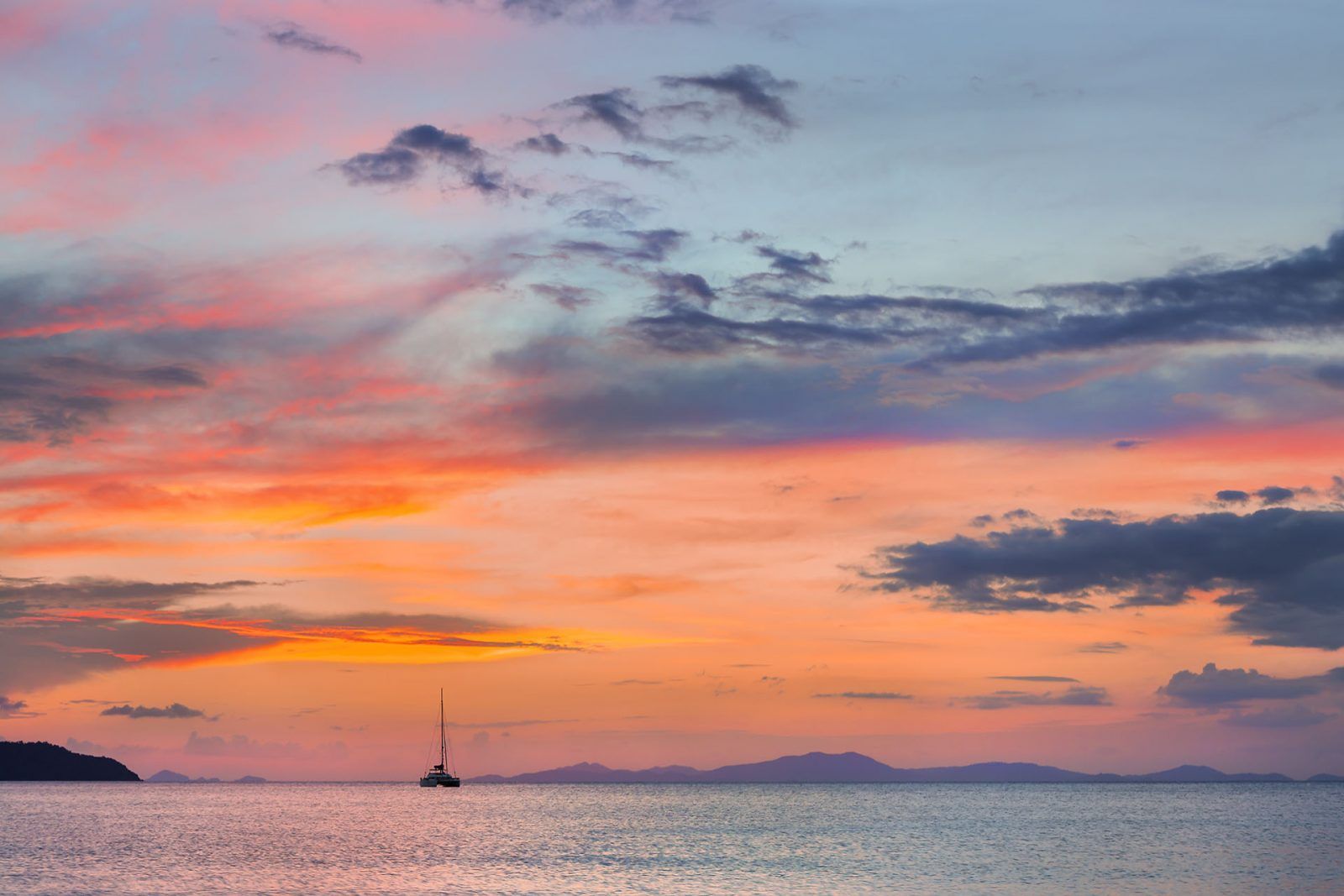
The renowned travel guide author Martin Schacht reports on a dreamlike journey to one of the last paradises on earth, the Mergui Archipelago in Myanmar. The text is accompanied by the sensitive images of the award-winning photographer Ken Schluchtmann, who continues his many years of personal engagement with Myanmar with these wonderful photographs.
Robinson charm in the Andaman Sea
They say there’s a snake lurking in every paradise. But here, between the mangroves that stretch their roots into the shallow water like stilts, I’m afraid, it’s perhaps more of a big lizard. Somewhere I read about a battle in World War II in which a group of Japanese soldiers were driven by the Allies into a swamp on the Burmese coast near the town of Mergui. Of the 400 Japanese, only 40 survived. Not because they had fallen victim to any warlike conflicts, but because there were so many crocodiles there.
Puffer fish on a leash
The swamp and the city of Mergui lie several hundred kilometers north, so the people I ask assure me, that the crocodiles are on farms or dead. Just as dead as the pufferfish, whose round, prickly skins dry like floppy balloons on a leash in the sun and which are supposedly sold to China, because somewhere in Ghuangzhou in the Pearl River Delta handbags made of puffer fish leather are now in fashion.
Digital detox
Apart from that, the island 111 is almost incredibly idyllic. Women with patterns on their faces from Thanaka, the grated tree bark that is supposed to protect from the sun, repair the traps. The men go out to sea, and the huts are made of traditionally woven bamboo mats, covered with palm straw. The cheerful children on the beach are completely satisfied with their kittens and some plastic cups to play with. They do not know the Internet, and there is no mobile phone network here either. Sometimes the phone actually works east of island 108, but only when it’s not raining. In this respect, there is no need to look at the mobile phone, which makes some travellers nervous. But what should one miss here?
Numbers instead of names
The village has just as little name as most of the surrounding eight hundred uninhabited islands. After all, the islands wear numbers. The Mergui Archipelago is the last untouched island paradise in the world. White beaches with turquoise lagoons, coral reefs and dense jungle are almost all to yourself. You can sail for days and meet no one except a few indigenous fishermen in the dugout canoe. The only people here until recently were the Moken, who populated the coast from Myanmar to Indonesia and mainly lived on their boats. The sea nomads, who did not adhere to national borders, have always been suspect to the governments. Lately, however, their relationship with them has become more relaxed, not least because many of them now live in villages on land.
One of the last paradises
The former military restricted area fell into a kind of Sleeping Beauty’s sleep after the Second World War and will probably be quickly developed for tourism in the next few years, as it lies only a few kilometres north of the border to Thailand. The Mergui archipelago can only be reached by boat and the easiest way is from the Thai Ranong, just one and a half hours flight away from the metropolis Bangkok. My tip: Drive now, because today the Robinson charm of the secluded national park in the Andaman Sea is still unbeatable. The lack of infrastructure allows only well equipped boats to cross the island world. Depending on your taste, the organizer offers Burma Boating from the classic three-master to the solar yacht everything you need to be independent on the water. Our catamaran “Meltemi” has the cabins in the runners, a generous sun deck and even a sea water desalination plant on board.
Anchoring between islands at sunset
The formalities at the border river get us in the right mood for the trip, from there we take a longtail boat across the bay to the Burmese border town of Kawthong, past a casino island owned by a somewhat shady billionaire and another island from which a large golden Buddha greets the guests. After the crew has stowed away the remaining supplies, we leave the harbour and anchor at sunset between two wind-protected islands, very close to the local fishermen. During a sundowner we discuss with our South African captain Nolte the route of the five-day trip, which leads us from the Burmese Kawthong up to Lampi Island. The chemistry with the other guests is also good, which is not unimportant on trips where strangers meet in a confined space. In addition to photographer Ken Schluchtmann from Berlin and cameraman Florian Witulski from Bangkok, we have on board an American film producer, two fragrance specialists from Singapore and an architect. People you can put up with for a few days.
Fresh culinary delights from the on-board kitchen
In the kitchen, our cook Kayin conjures up amazing menus in the smallest of spaces, which are enriched with freshly caught mackerel or tuna depending on the angler’s luck. A sashimi couldn’t be fresher. After the first overnight stay and the morning jump into the sea the deep relaxation begins. With the Dinghi we explore the mangrove forest of a river estuary, go snorkelling at reefs or watch majestic eagles circling over the limestone cliffs from the boat. If you have a lot of energy, try wakeboarding or climb a rock. In the evening we drive together to the beach and drink Pina Colada, fresh from the coconut, at the campfire from our own collected driftwood. By the way, there is no trace of wild boars, deer piglets and elephants living in the thicket of the jungle. The only animals that pose a danger here are sand flies, which can easily be fended off with insect repellents. The sun goes down behind the mast of the “Meltemi”, which rests on the sea as a silhouette, and the evening sky shines in quite unreal colours between orange, purple and pink. A flying fox scurries briefly through the light. Is it the second day or the third? Where are we, exactly? And what’s the number of the island? It doesn’t really matter, it’s all the same dreamy.
Photos: Ken Schluchtmann, Text: Martin Schacht , Translation: Christiane Bürklein
. Mergui Archipelo, island, Ken Schluchtmann, Myanmar, travel
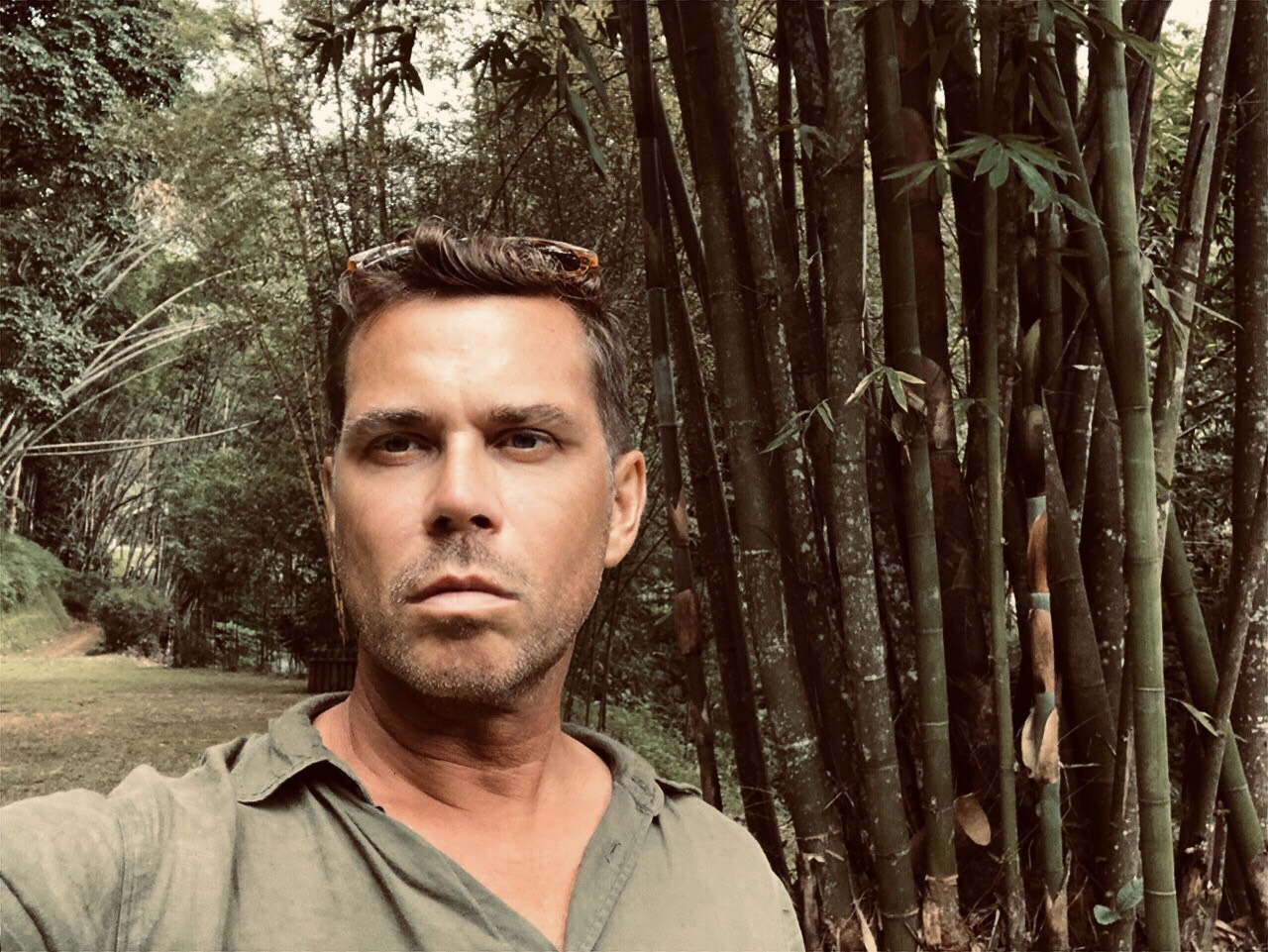
C&C author from Bangkok Martin Schacht is quite versatile. He produces TV reports for “Arte” and various other channels, he writes travel guides and stories for magazines. His novels are published by Rowohlt, his travel guides “Gebrauchsanweisung für Thailand” and “Gebrauchsanweisung für Myanmar/Burma” are published by Piper. Martin Schacht lives in Bangkok and Berlin – when he’s not travelling.
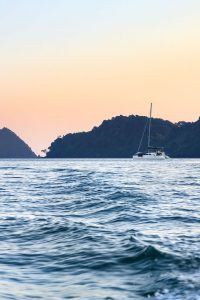
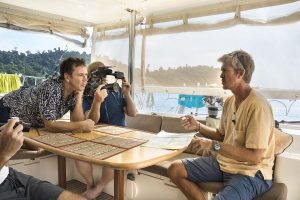
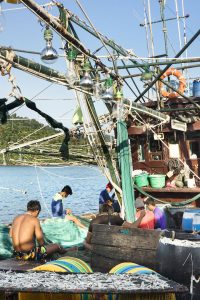
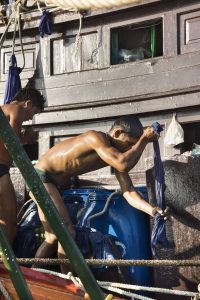
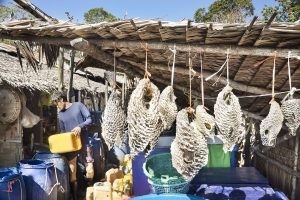
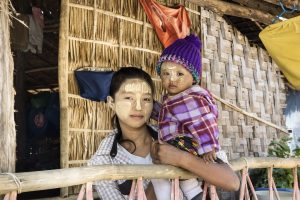
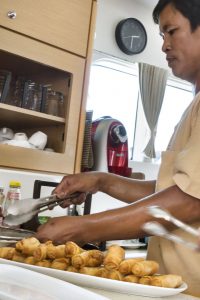
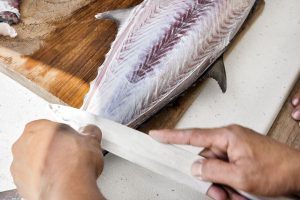
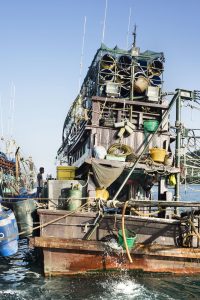
zidane
thanks for the great article, keep up the good work
Telkom University
What is the significance of the Mergui Archipelago in terms of biodiversity and ecological preservation?